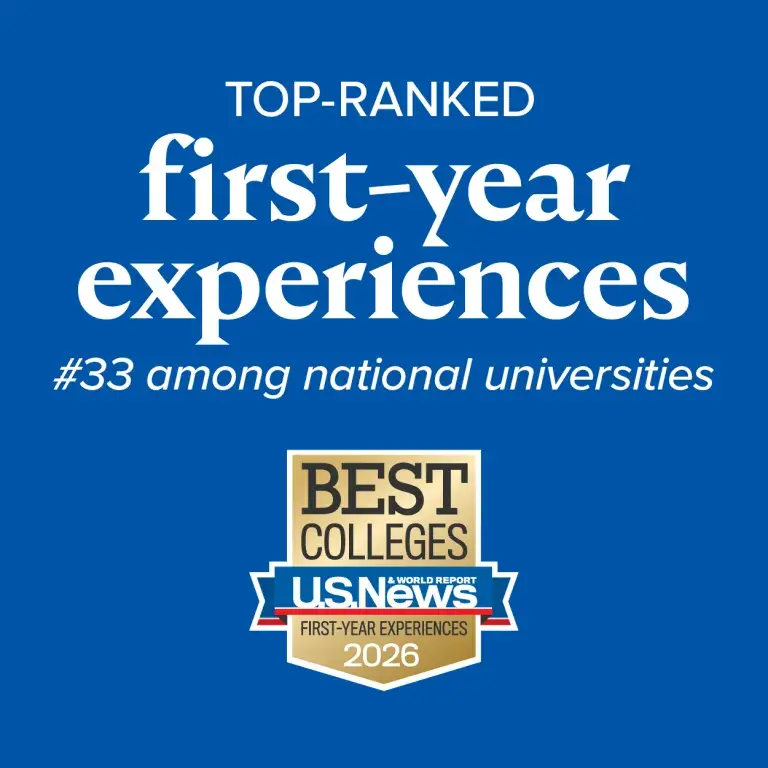
FinTech Degree (Bachelor of Science in Business Administration)
The new Finance and Technology (FinTech) degree—one of the first of its kind in the U.S.—is a program that intersects our upper-ranked finance and business intelligence and analytics programs.
FinTech encompasses the increasing use of technology in the financial services industry.
The presence of Big Data, coupled with technologies such as Blockchain, machine learning and artificial intelligence (AI), are materially changing the ways that firms in the financial services industry do business.
The field of finance has become far more data-driven in all its subdisciplines, and Creighton’s new FinTech degree allows students to gain a thorough understanding of how these technologies are disrupting traditional financial institutions—and how these institutions are starting to respond.
Program Details
Creighton’s FinTech degree provides students with the opportunity to complete the rigorous core coursework of a traditional finance major while also developing a solid technical background to complement their finance knowledge. This combination will make Creighton FinTech majors highly competitive in the finance job market upon graduation, while also preparing them for professional finance certifications, such as the CFA and CFP.
Program Goals:
As a FinTech major, you will gain a better understanding about:
- The emergence of new business models in various areas of payments, banking, insurance and wealth management
- How Big Data, machine learning and AI are affecting the financial services industry
- How to value fixed income and equity securities using discounted cash flow and relative value approaches
- How to use programming skills to perform analysis of traditional data and nontraditional data
- Why FinTech is a welcomed innovation that has the opportunity to progress society through both job creation and financial inclusion for financially excluded populations of the world
- How to code in languages such as SQL and Python
Curriculum:
This major includes a combination of financial and technology courses. You will explore topics like investment analysis, data and information management, security analysis and machine learning. Explore the full FinTech curriculum.

Kleespie excelled through Heider experience
Abby Kleespie, BSBA’22, squeezed every bit of juice she could out of her Creighton experience. She excelled academically, double majoring in FinTech and business intelligence and analytics and working multiple internships. Abby developed socially by engaging in Greek life, clubs and organizations, traveling abroad and forging deep friendships. She also grew spiritually, especially through her participation in campus ministry Encounter retreats.
FNBO (First National Bank of Omaha) FinTech Practicum
The FNBO FinTech Practicum addresses how legacy firms contend with the new disruptors in the finance industry. Students become the disruptors themselves, researching, building out and testing new products in the digital banking sphere.
The Heider Mindset Curriculum
Employers today need agile, adaptive professionals who understand that business can be done ethically and for the good of others. Creighton is paving the way in preparing students with those skills by implementing the Mindset Curriculum. Our courses help students work toward the skills that businesses are looking for, positioning them for success in the job market and beyond. It's part of how we teach students to do well while doing good. The six mindset are: Action, Analytical, Collaborative, Cross-Cultural, Reflective and Service.
Admissions Requirements
Creighton admissions are based upon:
- High school GPA
- ACT or SAT scores*
- Extracurricular activities
- Personal statement to demonstrate creative abilities not reflected in your transcripts
- Recommendation from high school counselor
- Honors sections and advanced placement courses will enhance a candidate’s application
*For students who are choosing to apply test-optional, ACT/SAT exam scores are not required at the time of application for admission.
Dates & Deadlines
Applications for the fall semester open on Aug. 1 of the prior year. For scholarship consideration, the earlier you complete your undergraduate application, the better. For up-to-date deadlines, visit our admissions page.
Tuition & Financial Aid
Tuition rates are updated each year. Visit our financial aid site to learn more about the cost of attendance.
Financial Aid
Creighton University's Financial Aid Office administers over $200,000,000 in student aid each year from federal, state, institutional and private sources.
To help make your undergraduate studies at Creighton University more affordable, we encourage you to file the FAFSA to apply for financial assistance. There is a variety of scholarships and financial aid opportunities available for Creighton data science students aimed at making your degree attainable. Explore scholarships.



Financial Management Association (FMA)
- This national organization is geared toward helping finance students transition from student to professional through guest speakers, corporate tours and information on internship and job opportunities.
Financial Planning Association (FPA) of Nebraska
- Members of FPA refine their professional skills, bolster their resumes and prepare for financial planning internships and careers by meeting and networking with financial-planning professionals.
Creighton Investment Banking Society (CIBS)
- With an emphasis on financial programming and networking, Creighton Investment Banking Society enables students to engage with the financial services industry in an environment conducive to learning and professional growth.
Business Intelligence and Analytics Association (BIAA)
- The student-run Business Intelligence and Analytics Association educates students on careers and topics related to the BIA field. It also provides BIA students the opportunity to use their skills to serve the greater community through the Community Analytics Cohort.
Creighton University Heider Business Senate
- The Creighton University Heider Business Senate is a liaison between the student body and the administration of the Heider College of Business. The Senate promotes the mission and values of the Heider College of Business through various projects.
Beta Gamma Sigma: Business
- This society encourages and rewards scholarship and accomplishment among students of commerce and business administration. Beta Gamma Sigma promotes the advancement of education in the art and science of business and fosters integrity in the conduct of business activities.
Alpha Kappa Psi: Business
- Alpha Kappa Psi is the oldest and largest business fraternity. Become a part of a group that develops well-trained, ethical, skilled, resourceful, experienced business leaders.
Portfolio Practicum
- Students have the opportunity to manage the Creighton University Student Portfolio (CUSP) Fund—over $10 million in Creighton endowment monies—through the Portfolio Practicum course.
Travel Course
- In our “Wall Street Week” travel course, students travel to New York City to visit top investment bankers and securities professionals.
FNBO FinTech Practicum
- FNBO FinTech Practicum students work with a digital bank startup to develop new products for prospective clients. The practicum blends the excitement of an entrepreneurial venture with the resources and support of an established legacy firm.
Career Options
Creighton FinTech graduates are prepared for professional finance certifications, such as the CFA and CFP. Entry-level positions for students earning the BSBA with a FinTech major may include:
- Financial analyst
- Investment analyst
- Investment banking analyst
- Product manager
- Data analyst
- App developer
- Data specialist
- Innovation analyst

University funds managed by students through the Portfolio Practicum class

internship opportunities

of recent graduates were employed, volunteering or pursuing an advanced degree within six months of graduation
Find Job Security in the Fast-growing Financial Industry
As the population ages and life expectancies increase, demand for financial-planning services is projected to grow at a much faster rate than other occupations, according to the U.S. Bureau of Labor Statistics.















